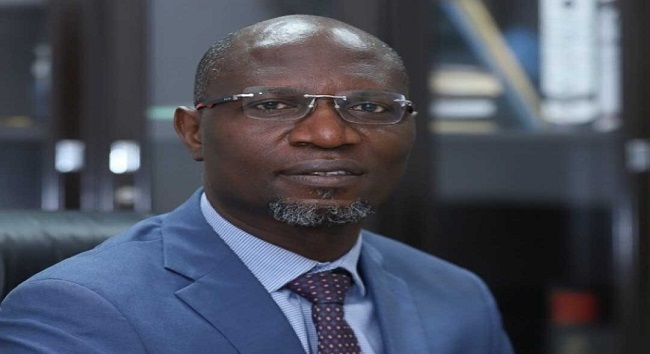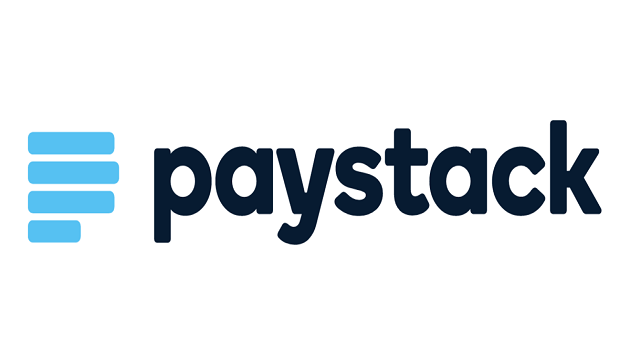E-Financial
CBN Spends N58.6Bn to Print 2.5Bn Naira Notes

Central Bank of Nigeria (CBN) spent the sum of N58.618 billion to print 2.518 billion Naira notes, valued at 1. 063 trillion in 2020, according a report in the Vanguard.

This was contained in the bank’s 2020 Currency Report posted on its website.
It indicated a decrease in the bank’s expenditure on currency printing, which stood at N75. 523 billion, in 2019 and N64. 040 billion, in 2018.
According to Vanguard, the current management of the CBN under the leadership of Mr. Godwin Emefiele, has been driving the cashless policy with a view to cutting the cost of printing bank notes and cash management, in the country. The new e-Naira was also initiated in line with the policy.
According to the report, “The total cost incurred on printing of banknotes in 2020 amounted to N58,618.50 million, compared with N75,523.50 million in 2019, indicating a decrease of ₦16,905.00 million or 28.84 per cent.”
CBN indicated in the report that the notes were printed in-country by the Nigerian Security Printing and Minting Plc (NSPM Plc).
The report indicated that CBN, “approved an indent of 2,518.68 million pieces of banknotes of various denominations in 2020 to satisfy the currency needs of the economy, compared with 3,830.94 million in the preceding year.
“The NSPM Plc was awarded the contract for the production of the entire indent. At end-December 2020, NSPM Plc had delivered 100 per cent of the approved indent.”
It put the total stock of currency (issuable & non-issuable) in the vaults of the bank at end December, 2020 at 2.747 billion pieces, compared with 2.641 billion pieces in 2019, indicating an increase of 105.73 million pieces or 4.00 per cent.
“At end-December, 2020, the total issuable notes (newly printed notes and Counted Audited Clean notes) was 592.94 million pieces, compared with 726.43 million pieces in 2019, representing a decrease of 133.49 million pieces or 18.38 per cent,” the report showed.
Forex
The report also indicated that a total of $1.830 billion was procured over the course of 2020.
According to the report, “This value represents a decrease of USD2,120.00 million or 53.67 per cent relative to the USD3,950.00 million procured in 2019.
“This was used to fund Bureaux De Change (BDC) operations, payment of estacode and Personal Travel Allowances (PTA) to Ministries, Departments and Agencies (MDAs).”
CBN said that the receipt and authentication of foreign currency deposits by Deposit Money Banks (DMBs) reduced significantly due to the downturn in global trade in 2020.
Currency in circulation
The report indicated, however, that Currency-in-Circulation (CIC) increased by 19.06 per cent from N2.441 trillion at end December, 2019 to N2 .907 trillion at end-December 2020.
“The growth in CIC reflected the continued dominance of cash in the economy. Analysis of the CIC shows that a greater proportion was in higher denomination banknotes (N100, N200, N500 and N1000).
“The higher denomination banknotes together accounted for 63.47 per cent and 98.08 per cent of the total CIC, in terms of volume and value, respectively. The volume of lower denomination banknotes (N5, N10, N20, N50), accounted for 28.43 per cent of the total CIC and 1.92 per cent, in terms of value as at end-December 2020.”
Currency processed
In 2020, a total of 173,585 boxes of banknotes valued at N980. 758 billion was processed, compared with 260,651 boxes of banknotes valued at N1. 533 trillion in 2019.
This represents a decrease of 33.40 per cent in the number of boxes or N552. 971 billion in value of processed banknotes.
Counterfeit Notes decrease
On counterfeit notes, the report showed that a total of 67,265 pieces of counterfeit notes with a nominal value of N56.83 million was confiscated in 2020, indicating a 20.80 per cent decrease in volume and 12.18 per cent decrease in value, compared with 84,934 pieces valued at N64.71 million in 2019.
It said, “The Global standard for the number of counterfeit per million is 100. The ratio of counterfeit notes to volume of banknotes in circulation was 13 pieces per million in 2020, compared to 20 pieces per million banknotes in 2019.
The N1000 and N500 denominations constituted the most counterfeited, accounting for 69.06 percent and 30.79 per cent, of the total counterfeit notes in 2020, respectively.
E-Financial
SEC Hikes Minimum Capital Requirements for Market Operators After a Decade

The Securities and Exchange Commission (SEC) has revised the minimum capital applicable to all categories of regulated capital market entities after 10 years.

The minimum capital review, according to the SEC, is informed by the need to strengthen market resilience, enhance investor protection, align capital adequacy with the evolving risk profile of market activities, and ensure that regulated entities possess sufficient financial capacity to discharge their obligations in a sustainable manner.
“The revised Minimum Capital framework seeks to: enhance the financial soundness and operational resilience of market operators; align capital requirements with the scope, complexity, and risk exposure of regulated activities; promote market stability and systemic risk mitigation; and support innovation and orderly development of new market segments, including digital assets and commodities markets,” SEC said in a January 16 circular to market operators.
The SEC circular was sent to all entities regulated by the Commission, including but not limited to core and non-core capital market operators; market infrastructure institutions; capital market consultants; financial technology (FinTech) operators; Virtual Asset Service Providers (VASPs); and Commodity market intermediaries.
All affected entities are required to comply with the revised Minimum Capital Requirements on or before June 30, 2027, the circular said.
“Entities that fail to meet the prescribed requirements within the stipulated timeline shall be subject to appropriate regulatory sanctions, including suspension or withdrawal of registration, as may be determined by the Commission,” SEC said.
Tier-1 Portfolio Managers (Full Scope) involved in the management of Collective Investment Schemes (CIS) and Alternative Investment Funds (Private Equity, Venture Capital, Infrastructure Funds etc) above N20 billion Net Asset Value (NAV), or discretionary and Non-Discretionary Private Portfolio Management Services above N20 billion Assets under Management (AuM), or exposure to foreign instruments up to 40 percent of the NAV are now required to have a minimum capital of N5 billion as against N150 million.
“Any Fund and Portfolio Manager with NAV/AuM of more than N100billion should have a minimum of 10 percent of the NAV/AuM as capital,” SEC added.
For the Tier-2 fund/portfolio managers (Limited Scope) who are in the business of management of Collective Investment Schemes with limited pooled fund creation of not more than 10 times the required capital (N20 billion) on Net Asset Value (NAV), or discretionary and non-discretionary private portfolio management services of not more than N20 billion, or those exposure to foreign instruments of not more than 20 percent of the NAV, now require N2 billion as minimum capital as against low of N150 million.
Likewise, broker-dealers whose services include: client execution, proprietary trading, margin/securities lending and advisory services no longer require N300 million minimum capital to operate but N2 billion.
The SEC said the minimum capital review from 2015 low is in line with its mandate under the Investments and Securities Act 2025 to regulate and develop the Nigerian capital market.
Also, Tier 1 issuing houses who do non-interest finance services, advisory & arrangement services but no underwriting now require N2 billion as against N200 million; while Tier 2 –issuing houses with underwriting and offers a ‘one-stop-shop’ for issuers, provides underwriting services, and renders advisory and product development services require N7 billion minimum capital for this business as against N200 million.
Also, the minimum capital requirement for brokers (client execution only) has been jacked up from N200 million to N600 million, while that of dealers (proprietary trading only) has been moved from N100 million to N1 billion.
Broker-Dealers’ (client execution, proprietary trading, margin/securities lending and advisory services) has been raised from N300 million to N2 billion, while Sub-Brokers’ (Digital) from N10million to N100million; Sub-Broker (Corporate) has been increased from N10million to N50 million. Also, sub-brokers’ (Individual) now need N10 million minimum capital for the business as against N2 million while inter-dealer brokers require N2 billion as against N50 million.
E-Financial
SEC Partners Police in Nationwide Crackdown on Ponzi Schemes, Crypto Frauds

Securities and Exchange Commission (SEC) and the Nigeria Police Force have forged an alliance against illegal scheme operators, investment frauds, and cryptocurrency frauds in a bid to protect the hard-earned savings and the financial dreams of the Nigerian people.

Dr Emomotimi Agama, director-general of the SEC, stated this during a meeting with Kayode Egbetokun, Inspector General of Police, held in Abuja.
Agama said the SEC, as the sentinel at the gate of Nigeria’s formal capital markets, had the mandate to protect investors, maintain fair, efficient, and transparent markets, and promote the growth of a vibrant economy built on trust, which is done by setting rules, licensing operators and market surveillance.
He, however, stated that the Commission faced adversaries who operate in the shadows, outside regulated gates by exploiting the trust of people and promising miraculous returns such as 200 per cent in 30 days.
“Currently, there is a gap, a seam between identification and enforcement that these scammers exploit. Today, we aim to close that gap permanently. Therefore, we propose a robust, institutionalised collaboration with the following pillars: Joint Intelligence and Operations Task Force: Capacity Building and Knowledge Transfer; Streamlined Processes for Enforcement and National Public Awareness Campaign,” he stated.
The SEC DG advocated, “the establishment of a dedicated SEC-NPF team that combines market intelligence, forensic accounting, and understanding of complex financial schemes with investigative and intelligence-gathering capabilities. This team will be the rapid-response unit to new frauds.”
Agama also sought the permission of the IGP to go into a Memorandum of Understanding with the Cyber Security Unit of the Police Force in a bid to ensure that cyberspace is safe for all Nigerians
In his response, the IGP Kayode Egbetokun assured the SEC team that the Nigerian police Force is ready to collaborate with the Commission, strengthen partnership in all the ways possible, and ensure that the Commission achieves its aims.
He said, “Your role in the Securities and Exchange Commission is very crucial to the Nigerian Economy, and with our supervision and support from the government, we will ensure economic recovery and growth. If the police unit in SEC is strengthened, it is going to make such an impact on your enforcement drive. What you said speaks so much to your determination to ensure effective drive in the Capital market, and when we can achieve effective enforcement, it comes with so many benefits.
Egbetokun also congratulated the Commission on the recent achievement of the N100 trillion market capitalisation mark, adding that it will aid economic growth and development.
E-Financial
Paystack Expands Beyond Payments into Banking

Nigerian fintech giant, Paystack has taken its boldest step yet beyond payments, acquiring Ladder Microfinance Bank. The fintech giant has quickly rebranded its new acquisition as Paystack Microfinance Bank (MFB) in a strategic shift that could reshape how African businesses access credit, deposits, and embedded financial services.

After nearly a decade building the backbone of online payments in Nigeria, the deal gives Paystack regulatory cover to hold deposits, lend directly to businesses and offer banking-as-a-service products.
More importantly, Paystack’s chief operating officer, Amandine Lobelle, highlighted that it allows the company to exert greater control over the trillions of naira that already flow through its platform every month, turning transaction data into a powerful engine for credit and treasury products.
“After 10 years of building payment infrastructure and going deep, we realised that businesses needed more than just getting paid to grow. We wanted to leverage the expertise that we have built over the last decade to continue to address some of the pain points that businesses have,” said Lobelle.
Paystack MFB will operate as a sister company to its payments business, initially focusing on working capital loans, merchant cash advances, overdrafts and term loans for small and medium-sized enterprises.
By using real-time payment data to underwrite loans, Paystack believes it can offer faster approvals and more accurate risk pricing than traditional lenders, directly tackling Nigeria’s estimated $32 billion small business financing gap.
For Paystack, founded in 2016 and acquired by Stripe in 2020, the move marks a strategic evolution from being just a payments processor to becoming a core part of the financial operating system for African businesses.
Today, Paystack supports more than 300,000 businesses across Nigeria, Ghana, and South Africa and has become one of Africa’s most trusted fintech infrastructure providers.
The banking licence is a game-changer as payments, once Paystack’s main growth engine, are increasingly commoditised across Africa. Lending, deposits and treasury services offer deeper margins, stickier relationships and long-term sustainability.
By layering banking services on top of payments, Paystack is betting that infrastructure depth will outperform flashy consumer scale.
However, the move also throws the Nigerian-born fintech giant into fierce competition with digital -first lenders and neobanks such as Moniepoint, Kuda, OPay and PalmPay, which already operate at massive scale. Still, Paystack’s strength lies in its merchant-first focus and developer-friendly APIs.

 E-Financial2 days ago
E-Financial2 days agoAngst as FG Demands 7.5 Percent VAT on Mobile Bank Transfers, USSD

 News2 days ago
News2 days agoMoniepoint Launches Second Cohort of DreamDevs Initiative to Double Down on Africa’s Tech Talent Pipeline

 E-Financial2 days ago
E-Financial2 days agoNGX lists 3.156bn UBA shares, boosting capital to N513Bn

 E-Financial2 days ago
E-Financial2 days agoThe Missing Pieces in Nigeria’s Banking Recapitalisation

 Telecom2 days ago
Telecom2 days agoGlo Unveils Immersive Gaming Experience, Travel Saga

 E-Business2 days ago
E-Business2 days agoHalf of Global Companies Build SOCs to Enhance Cybersecurity, with a Focus on Human Expertise

 General News2 days ago
General News2 days agoNITDA DG Reaffirms Nigeria–U.S. Partnership on Data Privacy, AI and Cybersecurity

 General News2 days ago
General News2 days agoParadigm Initiative Condemns the Internet Shutdown and Media Restrictions in Uganda Ahead of the 2026 General Election























